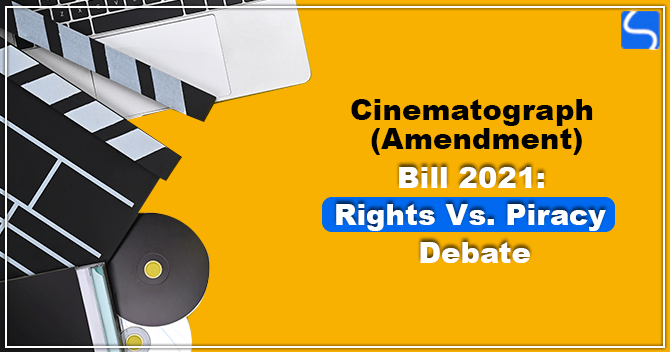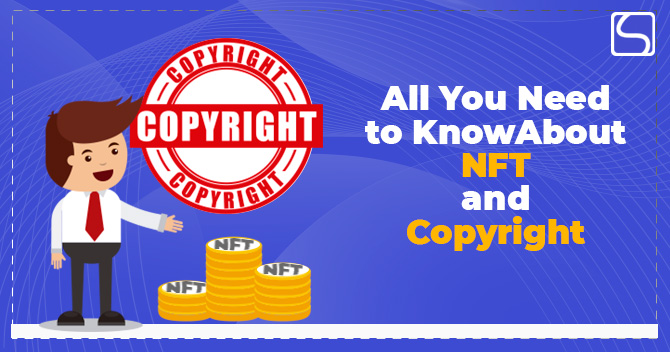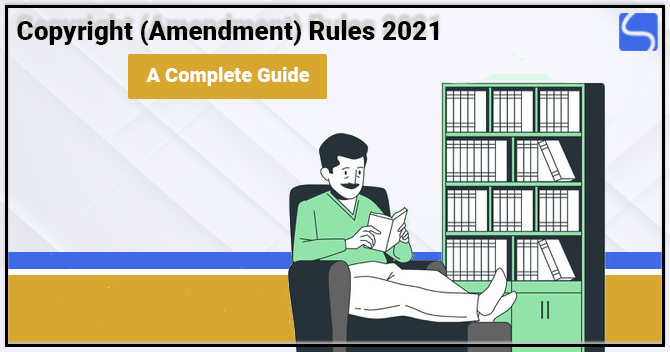Cinematograph (Amendment) Bill 2021 – Rights Vs. Piracy Debate

Karan Singh | Updated: Aug 27, 2021 | Category: Copyright
Recently, the Ministry of Information & Broadcasting announced the Cinematograph (Amendment) Bill 2021. Cinematograph (Amendment) Bill 2021 has been aimed to deal with the danger of film piracy and comes as an amended iteration of the Cinematograph (Amendment) Bill 2019, which received harsh backlash from industry professionals. But, even the changed bill finds itself shrouded in controversy due to one of its provisions that provides revisionary powers to the Central Government. This efficiently means that even if a film has got proper certifications, the Government can re-direct the CBFC Chairman to re-examine it. Moreover, there are additional provisions that don’t look compatible with the present anti-piracy provisions under the Copyright Act, 1957. In this blog, we are going to discuss about Cinematograph (Amendment) Bill 2021.
Table of Contents
Cinematograph Act, 1952 – An Overview
This Act put into place an exact method of certifying movies displayed in cinema halls and other public viewings. It’s also accountable for the existence of the CBFC (Central Board of Film Certification). The Union Government has definite guidelines that find out the certifications and edits/cuts given by the CBFC. There are four different categories:
- Restricted to Adults (A);
- Unrestricted Viewing (U);
- Restricted to a profession or a class (S);
- Unrestricted but with parents guidance for children below 12 years of age.
Reason Behind the Introduction of Cinematograph (Amendment) Bill 2021
The issuance of certificates and Indian film releases is not an original development and has continued for many years. The CBFC (Central Board of Film Certification) in its past has come down severely on many popular releases such as Udta Punjab (2016), Haider (2014), etc. These films tried to address ideas of feminism, sexuality, etc., which the CBFC considered too bold for public releases, and as an outcome, all the releases were made post-heavy cuts in such movies.
However, a question may be arising that if the threat is decade long, why so late to bring a reform now? The answer is that in the current debate surrounding the release of a movie called Tandav, which is valuable on Amazon Prime, met with harsh public outrage. This web series was targeted and blamed for misrepresenting Hindu gods and target the Hindu religion, which further led to an excess of FIRs being filed. The existing amended bill could be seen as a direct outcome of this debate.
Effects of the proposed Cinematograph (Amendment) Bill 2021
The previous Cinematograph (Amendment) Bill was introduced in the year 2019, under Section 7(4), had provisions for overriding the Copyright Act. The section fined recording a movie or sound recording being played or showed. With any consent of the Copyright owner in the exhibition facility. The same provision seems to have been replaced by Section 6AA, which, even though it has different wordings, the effect more or less remain the same. It states 6AA. Despite any law for the time being in force, no individual shall, without the written permission of the author, be allowed to use any video or audio recording device in a place to deliberately make or attempt or transmit or transmit or assist the making/transmission of a film copy or a part thereof.
Explanation – For the objective of the above section, the phrase “Author” shall have the same meaning as allocated to it in Clause (d) of Section 2 of the Copyright Act.
While the provision tries to remove the word “Exhibition Facility“, which was earlier left indefinite in the last bill and could have been colourably described, still it has its own fair shares of problems.
Further, the Cinematograph (Amendment) Bill 2021 makes the necessity of written permission from the film author compulsory, posing another set of vital challenges. This should be clear that even though the provision under the Copyright Act presents the film producer with the author’s title, it in no way indicates that the same shall remain true continually. There can undoubtedly be the assignment of rights that would assign the rights to 3rd party. In such a matter, any individual who wants to record a film lawfully would have to bear the needless burden of getting written permission from the stakeholders, failing which could land him in severe problem.
Problems with the Amendment Act – Criminalisation and Punishments
The proposed Section 7(1A) refers to the penalties for infringement or violation of the overbroad Section 6AA. The penalties range from three months to three years of imprisonment and/or a fine worth Rs. 3 lakhs which can be extended up to 5% of the examined gross production cost of the movie or film. Associating the fine to the gross production cost of the movie or film may lead to excessive penalties in the case of high-budget movies. It also fails to differentiate between repeat lawbreakers and first-time offenders or lawbreakers, something that Copyright Act does by prescribing various penalties. The higher limit of the fine is based on the cost of production means that a 1st-time offender may end up getting much strict punishment than an experienced abuser.
Particularly, piracy is already a punishable offence under the Copyright Act. Section 63 of the Act goes far away from what the TRIPS Agreement[1] demands in criminal solutions for Copyright Infringement. It furnishes imprisonment ranging from six months to three years and/or fine between Rs. 50,000 to Rs. 2 lakhs for intentionally violating Copyright. So far, Cinematograph (Amendment) Bill 2021 adds a non-obstante clause before Section 6AA, according to it an overall effect & creating a personal offence of illegal recording in addition to the Copyright Infringement offence which is identified under the Copyright Act as well as specific state Goonda Act.
Conclusion
Several of the changes proposed by the Cinematograph (Amendment) Bill 2021 are likely to significantly impact the freedom of expression of both public members and filmmakers. The re-establishment of revisionary powers of the Central Government goes against a clear Supreme Court ruling in KM Shankarappa vs. Union of India, which found such powers to be encroaching into the domain of legal review and thus offensive of the basic framework of the constitution.
Increasing penalties against piracy, an offence that is already criminalised by State and Central statutes, doesn’t provide efficient solutions to the problem at the grassroots level. Instead, it risks misuse against individuals & the chance of a person being convicted under various laws with heavy penalties for a single action. The robust anti-piracy policy of the Government should be realised by making more organised solutions to the problem.
Read our article:Facilitating Technology Transfer: A New Feature of IPR














